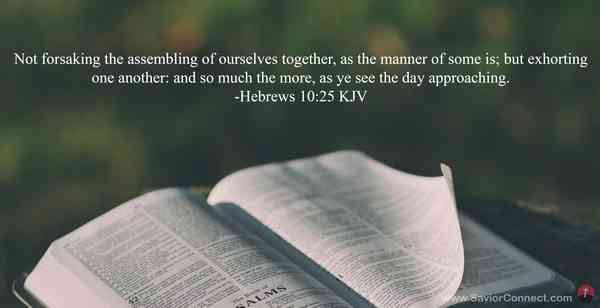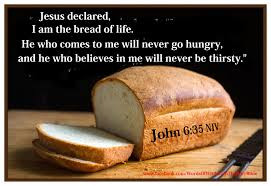
Inheritance is a thorny issue which can tear families apart. In some parts of the world, there are standard practices that are followed as tradition. For example, in most African traditions, the heir of the deceased’s estate is known in the family and by everyone in the community, well in advance. The first born son is normally considered as the heir of the deceased person’s wealth, including any titles bestowed upon the deceased within the community he lived. These are unelective posts like the kingship, chieftainship, headmanship or any other such positions which are passed from father to son.
BY PROSPER TINGINI
Under this system, disputes can sometimes arise if the deceased was married to more than one wife or had other children outside the matrimonial home. Complications can arise if there is no son to assume the role of an heir. In instances where the deceased had sired a child outside marriage and that child happens to be the eldest son, the African tradition would recognise that child as the rightful heir. The mother’s relationship with the deceased is of no significance. This is in line with what the Lord our God directed mankind as per biblical scriptures.
In the fifth book of Moses, commonly called Deuteronomy, Chapter 21 verses 15-17 contain the spoken words of God on the subject of the rightful heir. He directed Moses to tell the people, “If a man has two wives, the one loved and the other disliked, and they have borne him children, both the beloved and the disliked. If the first son is that of the disliked, then on the day he assigns his possession as an inheritance to his sons, he may not treat the son of the loved one as the first born in preference to the son of the disliked, by giving him a double portion of all that he has, for he is the first issue of his strength; the right of the first born is his.”
It is, therefore, clear that all children are born equal before God and should be treated likewise. The mother’s rank to the father is irrelevant. Every child born of the same father should be treated as if born of one mother also. Every child should equally benefit at inheritance, irrespective of the mother’s status to the father. What happens then if there is no son to assume the role of the heir? There is a variation of traditions in this instance. Some traditions would pass the inheritance to the deceased’s brother ahead of any daughter left behind. The brother may go on to take the wife of the deceased and marry her so that he can have control over the estate. The origin of this practice can be traced back into the biblical scriptures although the purpose now differs from the original intention, to suit the men.
In Deuteronomy 25 verses 5-10, God spoke to the people via Moses, “If brothers dwell together and one of them dies and has no son, the wife of the dead shall not be married outside the family to a stranger. Her husband’s brother shall go in to her, and take her as his wife, and perform the duty of the husband’s brother to her. And the first son whom she bears shall succeed to the name of the brother who is dead, that his name may not be blotted out of the land. And if a man does not wish to take his brother’s wife, then his brother’s wife shall go up to the gate to the elders, and say, ‘My husband’s brother refuses to perpetuate his brother’s name in the land; he will not perform the duty of a husband’s brother to me?’ then the elders of the city shall call him, and if he persists saying, ‘I do not wish to take her,’ then his brother’s wife shall go up to him in the presence of the elders and pull his sandals off his foot and spit in his face; and she shall answer and say, ‘So shall it be done to the man who does not build up his brother’s house? And the name of his house shall be called in the land; the house of him that had his sandal pulled off’.”
In the above quote, God is only concerned about the deceased’s family tree, the survival of family’s name, in the absence of a son. He seeks to give eternal life to the family tree, to continue building future generations from the deceased’s household. Although the intention is noble, current traditional practices allow a man to marry his deceased brother’s wife, even if the deceased has left sons behind. This practice is still prevalent. Fear of modern diseases and the financial responsibilities attached to it have helped to suppress this custom.
- Chamisa under fire over US$120K donation
- Mavhunga puts DeMbare into Chibuku quarterfinals
- Pension funds bet on Cabora Bassa oilfields
- Councils defy govt fire tender directive
Keep Reading
Western cultures have brought new concepts which have eroded on the traditions. The introduction of pre-written wills has brought new dimensions on the subject. Due to the legality of the will which gives written directions for disposal of property after death, the standardised customary traditions have been thrown into disarray. A person can now choose on his own who to bequeath his property and wealth to. However, most of the African traditions and others are still sticking to their old traditions. It is evident that these traditions are more in line with what God prescribed for mankind, but they have been twisted over centuries to suit the practices of man.
One of the major issues that have been ignored traditionally is the inheritances by the daughters. They are marginalised at all times. Their biggest perceived disadvantage is that it is felt that on marriage the daughter assumes the name of the husband and the offspring follow the bloodline of the father. Consequently, the family tree, which normally builds itself around the sons, would be broken. It is also feared that the wealth or other traditional positions held would then pass on to a different family.
In the scriptures the Lord our God provides an answer which gives rights to the daughters at inheritance. He pushes the daughters ahead of the deceased’s brother or any other relative, in the absence of an heir. He proclaims it into a law; that they can be the heir as well. In the book of Moses, Numbers Chapter 27 verses 8- 11 quotes God’s law on inheritance, “Say to the people, ‘if a man dies and has no son, then you shall cause his inheritance to pass to his daughter. If he has no daughter, then you shall give his inheritance to his brothers. If he has no brothers, then you shall give his inheritance to his father’s brothers. If the father has no brothers then you shall give his inheritance to his kinsman that is next to him of his family, and he shall possess it. It shall be to the people a statute and ordinance as the Lord commanded Moses.” l Prosper Tingini has authored a book entitled: God’s Constitution for Mankind — The Laws and Commandments. He can be contacted on 0771 260 195 or email: [email protected]












